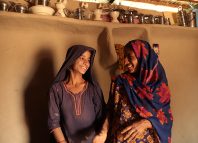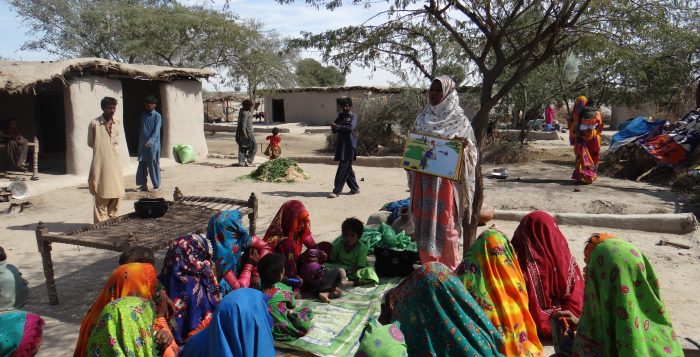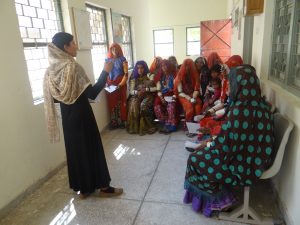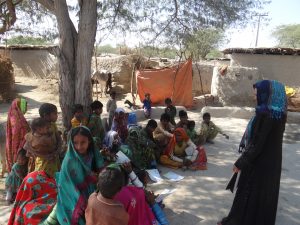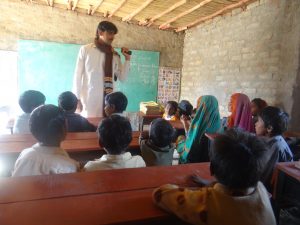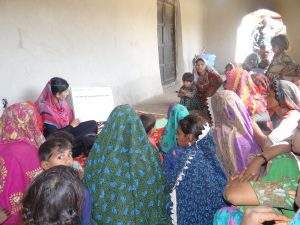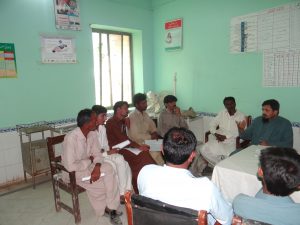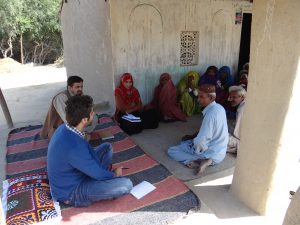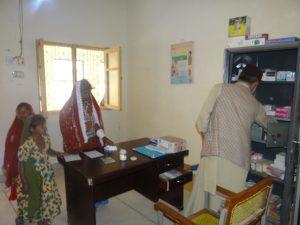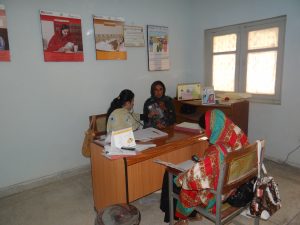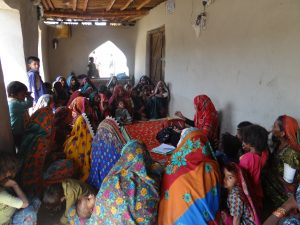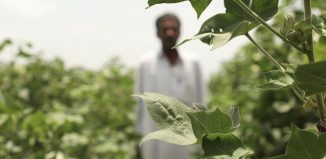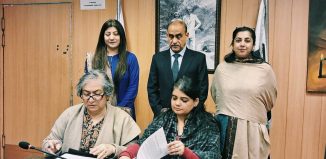Providing the basic human right to health care
According to the Pakistan Demographic and Health Survey (PDHS), 2012-13, maternal and child death remains a major concern in Pakistan. In the provincial public sector, health services are provided through a tiered referral system of health care facilities; with increasing levels of complexity and coverage from primary, to secondary and tertiary health services. Primary care facilities include Basic Health Units (BHUs), Rural Health Centres (RHCs), Government Rural Dispensaries (GRDs), Mother and Child Health (MCH) Centres and TB centres. Most of these public health facilities lack the provision of a broader range of preventive and curative health services.
Community World Service Asia conducted a baseline survey in first year (2015) of its health project inception in Umerkot and these are the major findings of the study:
- Very few, small private clinics operational in some villages of the targeted Union Councils. These clinics are not affordable for most of the community members (selected in the sample size) as they have low monthly incomes, with an average of only PKR 8733
- According to 91.7% of the respondents, there are no antenatal services. 99% of respondents replied that there are no postnatal services. 5% reported the absence of delivery services whereas 96.1% reported the absence of family planning services
- 100% of respondents replied that there are no women medical officers available at the health facility, whereas, 76.5 % reported the absence of Lady Health Visitors (LHVs) in the health facility. A 99.5% and 81.4% responded positively to the presence of male doctors and Medical Technician (MT) respectively
- 5% respondents raised the need for a presence of medical staff to improve health services in the area
- 8% respondents raised the need for provision of essential medicines, whereas 37% believed that the provision of 24 hours emergency services were essential to improve the quality of services
- 2% of the respondents believed better infrastructure and cleanliness of health facilities were key to further improving the overall health services of the area
What is the project doing?
After analysing the results of the baseline survey, three Rural Health Centres (RHCs) were set up by Community World Service Asia, with the support of Act for Peace. All three of these RHCs are functioning with a focus on delivering primary healthcare services in the district of Umerkot.
The health facilities established, have deployed Female Medical Officers (FMOs), LHVs and Medical Technicians in their centres at Hyderfarm and Nabisar Road along with providing medicines. In RHC Dhoronaro, a lady doctor sits in shifts and rotationally visits the centre as well.
The social mobilizers, under the project, have formed two Health Committees in addition to the existing six committees formed last year. An advocacy forum has also been developed at district level to address emerging health issues. The village Health Committees and advocacy forum consists of eight to ten members including both men and women activists from the community, who are responsible to facilitate and support health services provided under the project. The village Health Committees meet monthly, with facilitation of the community mobilizers, and share their committees’ progress, problems and challenges and plan for the next month. A total of eight village Health Committees and a district health advocacy forum are running actively and meet regularly at the health facility. They conduct joint meetings in the villages on a fortnightly or monthly basis to discuss the pertaining issues regarding health and other community based problems. These meetings are properly documented and shared with the project management team. The discussions of these meetings are recorded for further planning, improvement and implementation of the project activities.
Clinical support is also given at these curative and preventive RHCs with focus to Maternal, Newborn and Child Health (MNCH) services. These services are delivered by women health staff comprising of FMOs and LHVs along with two medical technicians and one male and one female social mobilizers. The main focus of the services is on reproductive health of women of childbearing age.
Recognizing maternal, neonatal and child health care as a major component of the health services, the project team provides antenatal and postnatal assistance to local women. Complicated cases are referred to the secondary level health care facilities in the area. The MNCH services at the RHC focus on continuum of care including family planning, pre-pregnancy, pregnancy, labour and childbirth, postpartum, newborn care, and child health and support high-impact, evidence-based interventions that saves lives.
Health education sessions are being conducted for men, women and children at the health facilities, in the surrounding villages of each RHC and at schools. Major topics on health education, such as Personal Hygiene, Family Planning, Reproductive Health, Hepatitis, HIV/AIDS awareness, Importance of Breastfeeding and Safe Drinking Water, with emphasis to prevalence of the disease, have been included in the IEC materials developed for building the knowledge of the communities. Through general OPD, patients are treated and facilitated along with being provided necessary medicines.
The project team assessed the nutritional status of women and children under five, of all the three RHCs, through analysing their medical history, physical examination, and height to weight balance and various other parameters. The patients are then referred accordingly to different NGOs, providing nutritional care, based in the district. More complicated cases are referred to District Headquarter Hospitals of Umerkot and Mirpurkhas. Counselling sessions to malnourished, lactating and pregnant women are also provided. Children under the age of five are facilitated with de-worming medicines and family planning services are being provided to women by LHVs across the three healthcare facilities. The LHVs brief the women from these communities on the importance and benefits of family planning and the various, free of cost methods available for family planning at the health facilities.
What have we achieved so far?
The availability of services such as primary care, behavioural health, emergency, and public health services are a basic human right which must be provided to all. The project has worked towards providing this basic right and has achieved the following so far:
- 12,156 community members provided with curative and preventive healthcare services
- 11,307 individual have participated in health education sessions
- 2,414 women provided with antenatal and postnatal services
- 868 individuals have availed family planning services
- 5,426 women and children were assessed for nutritional balance
- 42 baby deliveries conducted at the health facilities
- 25 delivery kits were provided to women as per criteria
- Participation in seven coordination meetings with line departments, other NGOs and civil society organizations working at district level.
Community World Service Asia is implementing the project through its own staff, including two lady doctors, three LHVs, two Medical Technicians, two community mobilizers and a manager located in Umerkot. They are implementing the project with equally involving the Health Committees and District Advocacy Forum. The health team continues to maintain regular dialogue with the government line departments at the Federal, Provincial and District levels to ensure the efficacy and implementation of the program. Regular coordination meetings are held between key, district stakeholders including NGOs and civil society organizations.




